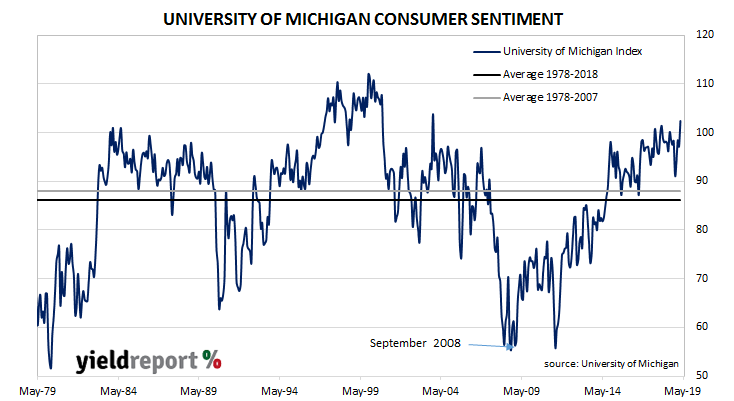US consumer confidence had started 2019 at well-above-average levels in a longer-term context, although it was markedly lower than the more buoyant readings which typified most of 2018. Less-confident households are generally inclined to spend less and save more and some drop off in household consumption, especially on discretionary spending, could have been expected to follow. As private consumption expenditures account for a majority of GDP in advanced economies, a lower rate of household spending growth would flow through to lower GDP growth if other GDP components did not compensate. However, the latest consumer survey suggests this is currently not the case in the US.
The latest survey conducted by the University of Michigan indicates the average confidence level of US households has moved from an elevated level to one which is bordering on exuberant. The University’s Index of Consumer Sentiment result jumped from April’s revised figure of 97.2 to 102.4 in May, significantly more than the market estimate of 97.9. Westpac’s Finance AM team explained the increase in terms of “a solid jobs market outweighing skittish markets and rising trade tensions.”

